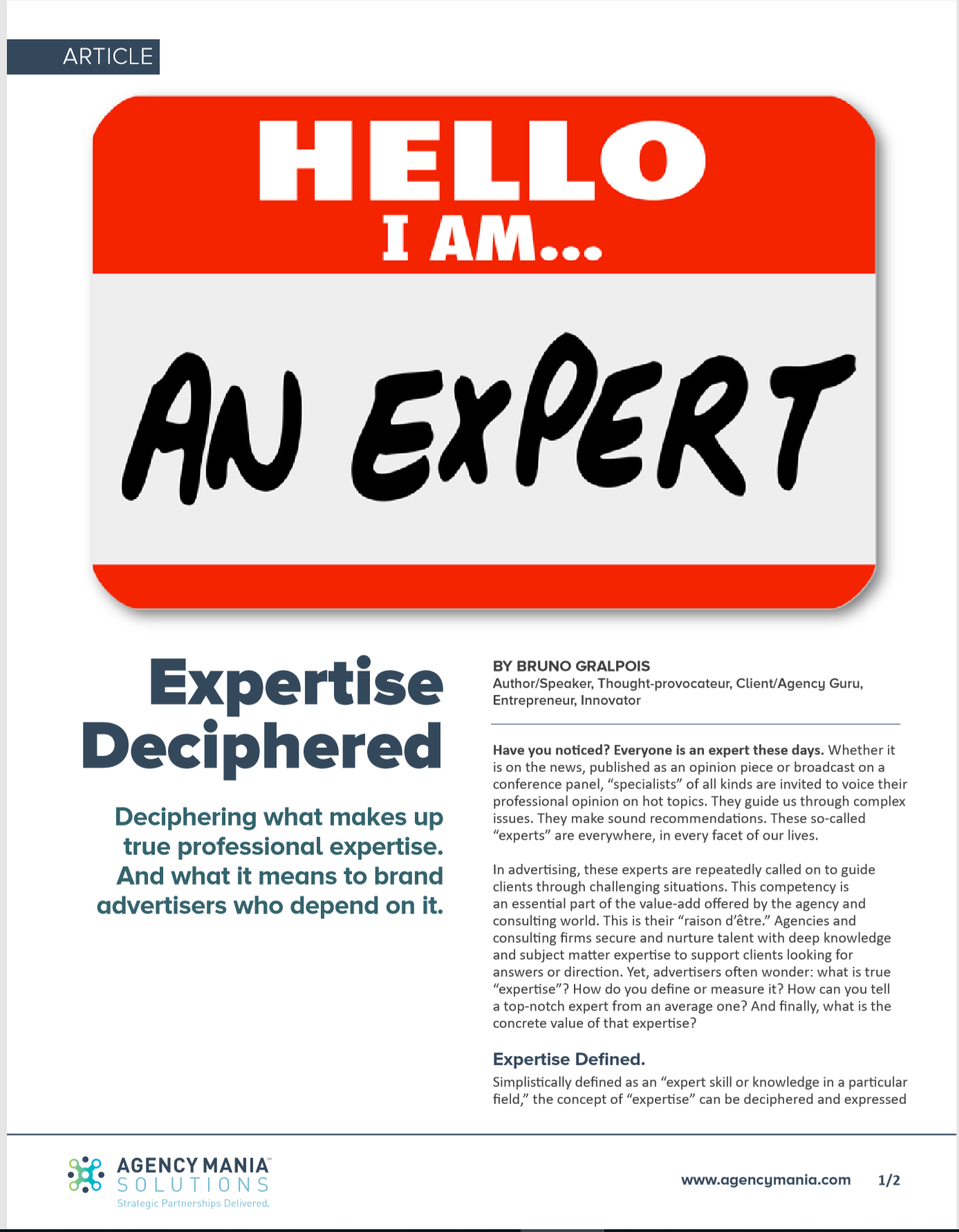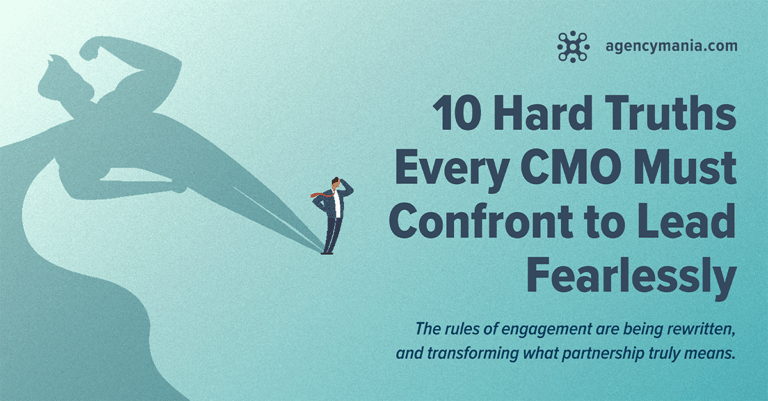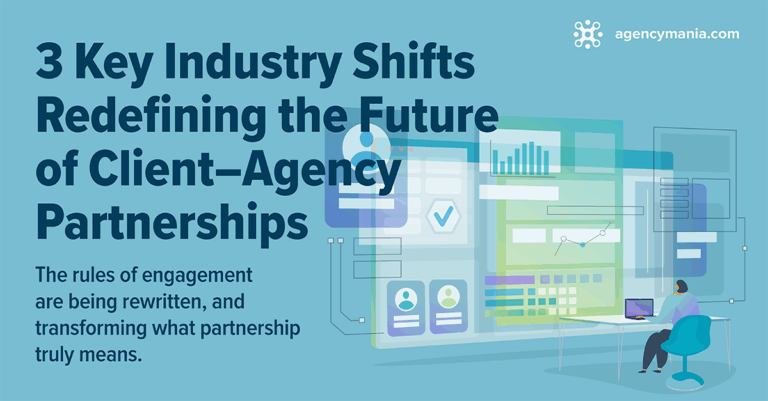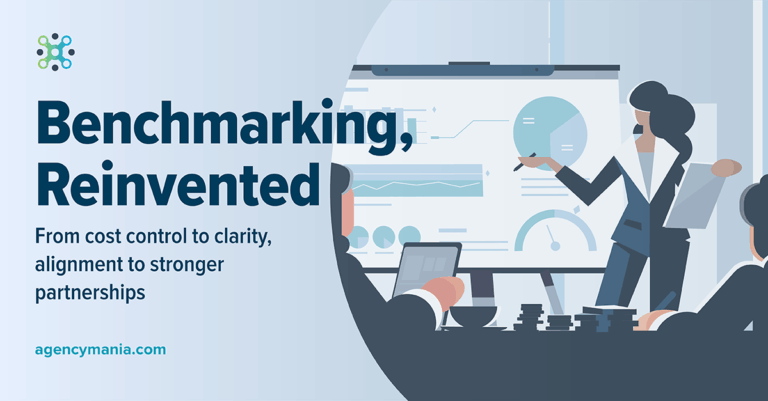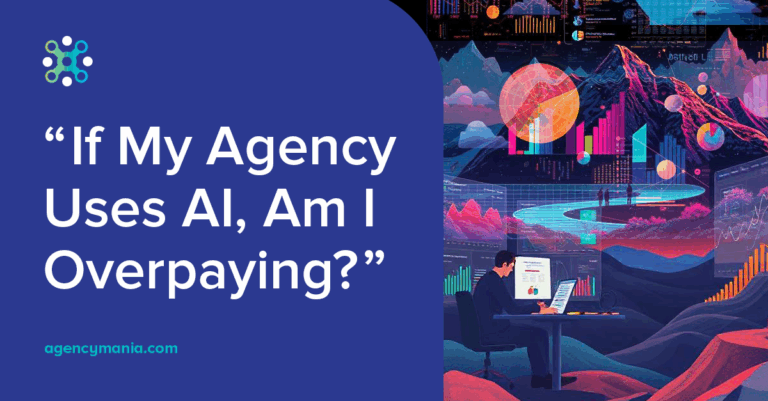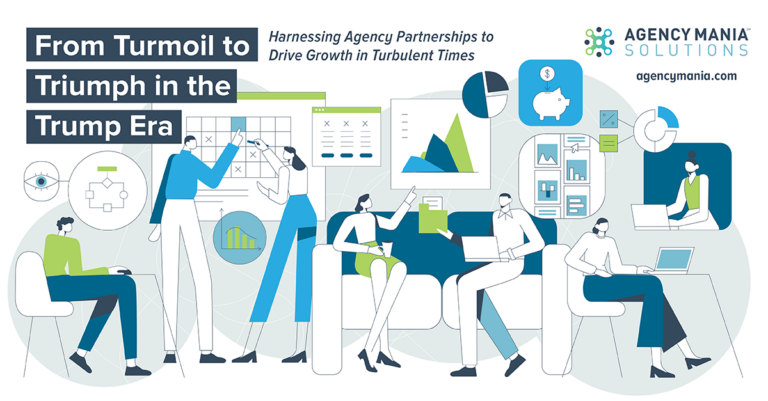Expertise Deciphered:
Have you noticed? Everyone is an expert these days. Whether it is on the news, published as an opinion piece or broadcast on a conference panel, “specialists” of all kinds are invited to voice their professional opinion on hot topics. They guide us through complex issues. They make sound recommendations. These so-called “experts” are everywhere, in every facet of our lives.
In advertising, these experts are repeatedly called on to guide clients through challenging situations. This competency is an essential part of the value-add offered by the agency and consulting world. This is their “raison d’être.” Agencies and consulting firms secure and nurture talent with deep knowledge and subject matter expertise to support clients looking for answers or direction. Yet, advertisers often wonder: what is true “expertise”? How do you define or measure it? How can you tell a top-notch expert from an average one? And finally, what is the concrete value of that expertise?
Expertise Defined.
Simplistically defined as an “expert skill or knowledge in a particular field,” the concept of “expertise” can be deciphered and expressed as a sort of mathematical formula. It is composed of the following four ingredients: Experience, Insight, Foresight, and Informed Opinion.
- Experience: A robust set of lessons learned and applied, acquired over extensive years of training and practice.
- Insight: The ability to secure data, interpret it, conduct analysis, and draw meaningful conclusions.
- Foresight: The capacity of anticipating or projecting a future state. Seeing ahead and knowing in advance with some reasonable level of accuracy.
- Informed opinion: This is the ability to gain perspective and articulate an opinion that is based on the combination of the above – experience, insight, and foresight.
So, the formula looks something like this:
The Value of Expertise.
Brand advertisers are willing to invest time, effort, and money for proven expertise. They must however determine if these expert resources are proficient and knowledgeable enough to meet their requirements. Self-proclaimed but unproven experts are likely to take shortcuts. They are likely to misread information, draw false conclusions, and misguide. They fall short of delivering informed opinions. And the implications could be disastrous.
Pricing for that expertise remains more an artform than a science. The relationship between the monetary value of expertise and its substantive nature is often looser than we would like. Measuring one’s level of expertise can be daunting. Yet, agencies and consulting firms assign it a price tag based on its perceived value to clients. There are many variables at play that might influence how it is priced: access and availability, degree of expertise, and past performance.
What Advertisers Can Do.
Advertisers must carefully assess the type and level of expertise they need before committing to a partner. As they evaluate agencies, they will collect some basic information: 1) review the expert’s bio to assess the relevancy and depth of their expertise, 2) ask for examples of recent work that illustrates the type of insight they are able to produce, and 3) ask for their views and opinions about the future state of the industry or a particular topic area. Another obvious data point is the expert’s job title. A given level of expertise is commonly captured in the job title of a given individual – which presumes a certain level of experience and insight/foresight. To ensure clients are not over-compensating for a type of expertise, they often institute a formal taxonomy for job functions and levels (e.g., research manager vs. director vs. vice president), so a certain level of seniority for a given role within an agency is seen as somewhat identical at another.
Evaluating Its Impact.
Once they engage, brand advertisers can rely on a robust client/agency performance evaluation process to seek input and provide feedback about these expert resources. For example, clients may ask: Did the agency provide actionable insight? Did the agency leverage best practices or prior client experience to inform recommendations? Did they accurately anticipate changes in the industry that might impact future efforts? And so on. The answers, based on the formula shared earlier, will provide useful insight on the value realized by the client. It will also help identify if any adjustments are required.
In this ever increasingly complex world of advertising, immediate access to expertise in specialty disciplines or functional areas is vital to remain competitive and drive operational excellence. Depth and breath of expertise has never been a more important competency to fuel growth and make strategically sound decisions. Yet, advertisers must themselves become experts at securing external, specialty talent if they are to realize the most value.
By: Bruno Gralpois, Co-Founder & Principal

